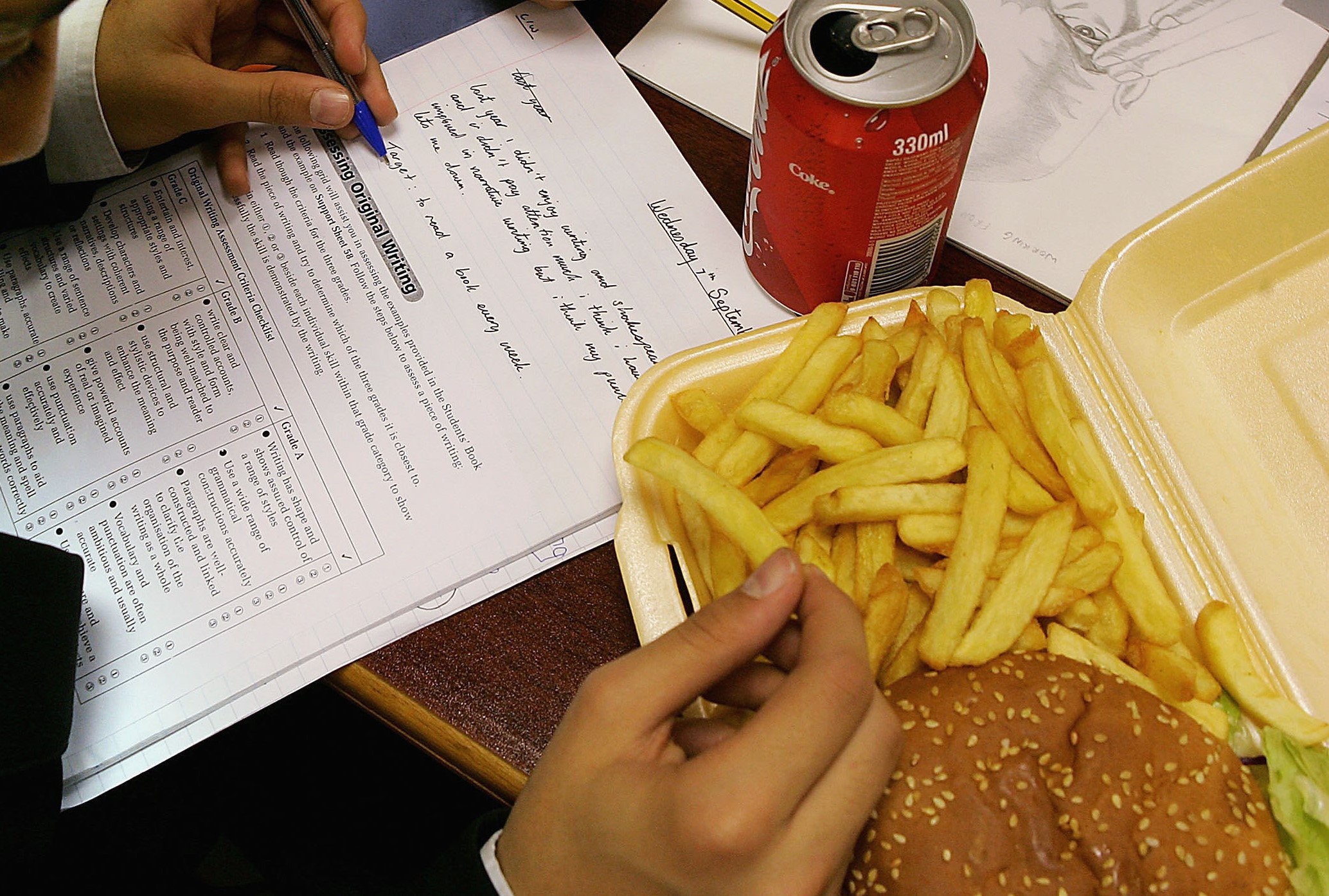
Childhood obesity is on the rise, and the poorest children are seeing the largest increase.
A new report by Public Health England released yesterday showed that children of both sexes in year six — as well as girls of reception age — have experienced an upwards trend in obesity and excess weight over the past decade.
That trend is being driven by a widening divide along deprivation lines: in short, children in the most deprived areas are seeing the largest increase in obesity, severe obesity and excess weight.
% Year six boys who are obese
% Year six girls who are obese
This is bad news for future public health, as obese children are likely to stay obese into adulthood, and are therefore more likely to develop diabetes, heart and circulatory diseases later.
“This report lays bare the complete lack of progress we are making in addressing excess weight in children, setting them up for an increased risk of disease as they get older,” says Caroline Cerny, alliance lead at Obesity Health Alliance.
“[Being] overweight and obesity is increasing in boys and girls in year six and in girls just starting school. In all groups the upward trend is driven by increases in children from the most deprived backgrounds widening the already gaping inequality in children from poorest and richest backgrounds.”
The statistics show a regional variation. Childhood obesity has risen the most outside of London and the South of England: the West Midlands has seen a 16 per cent rise in year six obesity, while in the North-west it has risen by 14 per cent.
The regions of the country that have seen the biggest rise are — not by coincidence — the regions that have been hit hardest under austerity.
Rise in child obesity between 2008/09 and 2018/19
The findings chime with those of a review released earlier this year by the Institute of Health Equity, marking ten years since Sir Michael Marmot’s original review on health inequalities. It found that health inequality has risen across the board over the last decade — not just for children.
In 2019, people could expect to spend more of their lives in poor health compared to 2010, life expectancy had stalled (and declined for the poorest 10 per cent of women), and the health gap had grown between wealthy and deprived areas.
This decline in public health over the last decade may have heightened the impact of the coronavirus outbreak on England’s population, with a PHE report on Tuesday finding that obesity increased the risk of dying from Covid-19 by 27 per cent, and morbid obesity more than doubled the risk of dying — although children are among those least at risk from the virus.
Funding cuts and austerity are largely to blame for rising health inequalities: areas outside London and the South-east experienced larger cuts, which undermined their capacity to improve the social determinants of public health.
“This damage to health has been largely unnecessary,” the authors of the new Marmot review noted.
“There is no biological reason for stalling life expectancy and widening health inequalities. Other countries are doing better, even those with longer life expectancy than England. The slowdown in life expectancy is not down to exceptionally cold winters or virulent flu, and cannot be attributed solely to problems with the NHS or social care – although declining funding relative to need in each sector will undoubtedly have played a role.
“The increase in health inequalities in England points to social and economic conditions, many of which have shown increased inequalities, or deterioration since 2010.”
Professor Russell Viner, president of the the Royal College of Paediatrics and Child Health, said: “The government has made welcome commitments on childhood obesity and young people’s mental health but we need to see delivery in these and other areas.
“We have the evidence, the experience and the expertise to make real progress in the life of this government. It’s now time to deliver for children and young people.
“We’re in danger of failing a generation if we don’t turn this situation around.”






